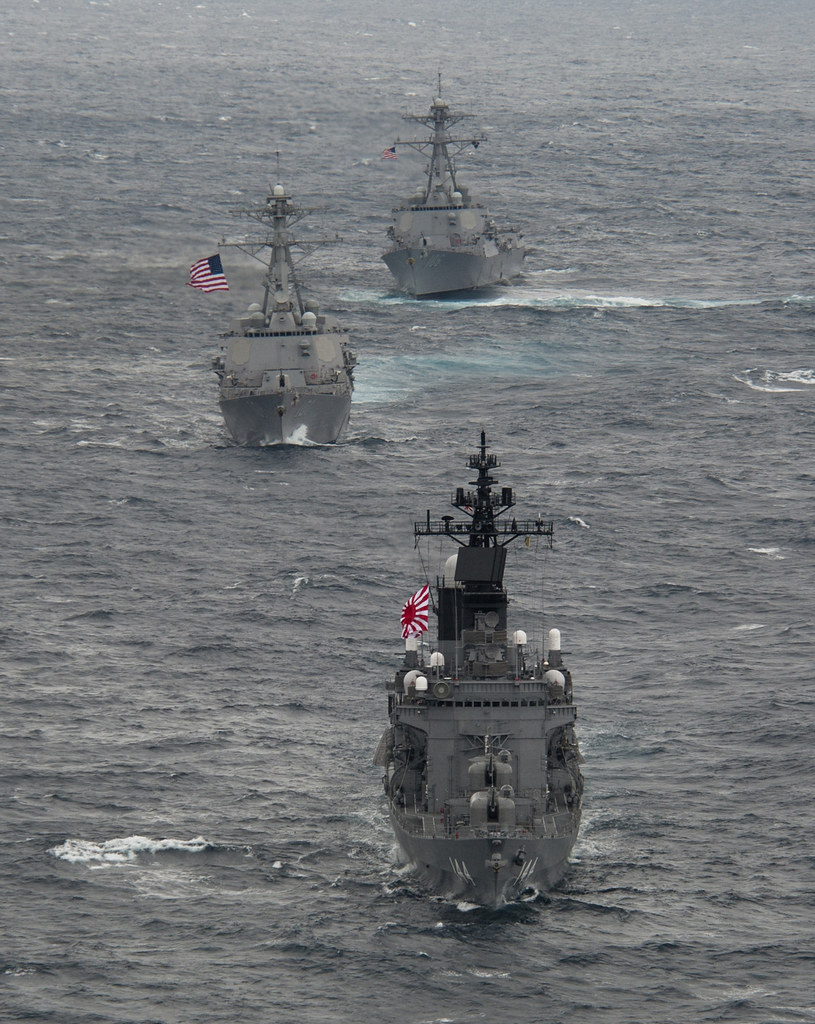 |
| Image: Flickr User - Official U.S. Navy Page |
By J. Randy Forbes and K. Michael Conaway
The United States’ alliance with Japan can grow stronger still.
Today marks the beginning of Japanese Prime Minister Shinzo Abe’s official visit to Washington D.C. His visit will include a meeting with President Obama and an address to a joint session of Congress. Perhaps more importantly, however, Prime Minister Abe’s visit marks a pivotal moment in the U.S.-Japan alliance – a historic change that will benefit both allies and the Asia-Pacific region as a whole. This change is Japan’s decision to embrace the policy of collective self-defense and adopt new guidelines for U.S.-Japan defense cooperation. These changes will allow Japan to play a greater role in our partnership while also making their nation more secure. Prime Minister Abe’s visit is a good opportunity to recognize the enduring importance of our alliance with Japan and reaffirm our shared commitment to peace and prosperity in the Asia-Pacific.
Since the end of World War II, Japan has become one of the world’s most successful democracies and a pillar of stability in the Asia-Pacific region. In the aftermath of that devastating conflict, Japan renounced war and “the threat or use of force as a means of settling international disputes” in its constitution and codified its “desire to occupy an honored place in an international society striving for the preservation of peace.” True to its goals and principles, Japan stands 70 years later as a shining example of a responsible actor and stakeholder in Asia and the broader international system. Although indisputably a great power with impressive economic, diplomatic, and cultural influence, modern Japan has kept its Self-Defense Forces small but capable, and never threatened its neighbors.
Read the full story at The Diplomat
